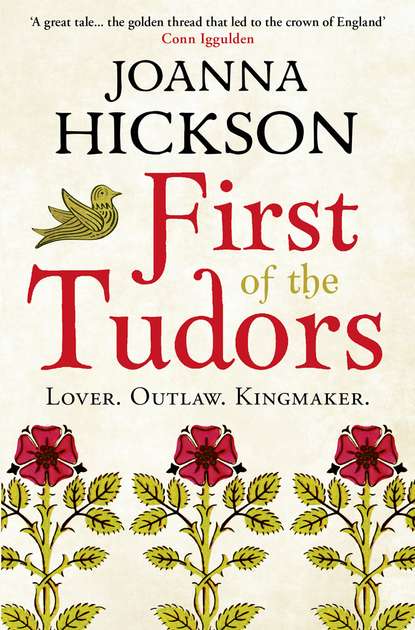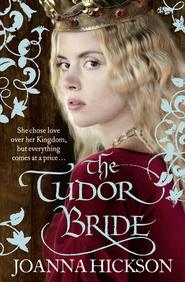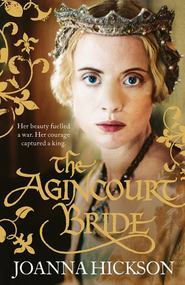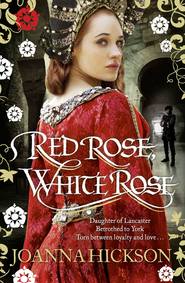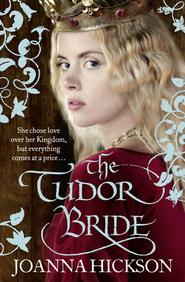По всем вопросам обращайтесь на: info@litportal.ru
(©) 2003-2024.
✖
First of the Tudors
Настройки чтения
Размер шрифта
Высота строк
Поля
I could have done with Edmund’s support at this time but he had taken himself off and left no word as to where he had gone and so I was alone in attempting to arbitrate between the Duke of Somerset and the Duke of York, who exploited the absence of the king and all the force of their superior age and rank to pursue their private war. Somerset insisted on keeping to the king’s policy of peace at all costs whereas Richard of York, a soldier as much as a diplomat, had always favoured pursuing an aggressive military policy, admittedly with an impressive past record of success, which fed his lip-curling disdain for Somerset, whom he held entirely responsible for England’s ignominious loss of France. York’s habit in Council was to bully his way through an argument, whereas Edmund of Somerset had been accustomed to gentlemanly debate, relying on his close relationship with the king to drive his point of view. With the king indisposed and the queen in confinement awaiting the birth of her child he floundered under the lashing of York’s scathing tongue. I found it impossible to mediate in a poisonous debate that triggered bitter exchanges and further widened a rift between the two dukes that seemed likely never to be closed.
As the meeting disintegrated and York departed in red-faced fury, his parting words to me were delivered with unwarranted spite. ‘Well, you tried, young Pembroke, but you would do better watching your own back. While you played nursemaid to your witless half-brother, your full flesh and blood was plotting to cut you out. Next time you see Richmond, ask him where he has been. I guarantee you will not like the answer.’
Later that day I was still seething over the sneering laugh that had punctuated York’s parting jibe, when my brother Edmund burst into the Westminster Palace armoury where Maredudd was helping me into the old hauberk I wore for my daily arms practice. ‘Ah, here you are, Jas! God’s greetings, brother. You may offer your congratulations to a married man – well, as good as married anyway.’
My already low spirits plummeted further and I stared at him, speechless. He cackled – there is no other word for it. ‘Ha ha! Do not tell me you still harboured hopes for Margaret yourself? She was always meant for the eldest you know. We make the perfect combination – I am handsome and royal and she is rich and willing. Well, why wouldn’t she be? Willing, I mean.’ He spread his arms wide to display his undeniable charms.
‘Perhaps because she has good taste.’ My voice grated from my constricted throat. Edmund was right. I had harboured high hopes for Margaret, had even broached the subject again with Henry before his malady took hold but he had given no hint that he had already granted the marriage to Edmund.
My brother shrugged. ‘I will allow your sour grapes because I understand that you are a bad loser but there will be another rich bride for you, Jas.’
I raged inwardly. As if riches were the only reason for coveting Margaret! At this juncture my thoughts were of a murderous intent.
‘How about Elizabeth of York?’ he added. ‘You can be sure that her father will endow her well. Or the Earl of Warwick’s little sister, Katherine? There are plenty more like Margaret Beaufort.’
I had turned away, hiding my dejection in the rattle of chainmail as Maredudd hauled the hauberk over my head. Edmund was wrong; the delicate and graceful Margaret Beaufort could not be outshone in my estimation and definitely not by a daughter of York. In hindsight, I had put Margaret on a pedestal and allowed myself to see her as my perfect honoured lady and me as her gentle knight. I had been captivated by her elfin charm and her engaging manner but I think I can truthfully state that my thoughts had been entirely chaste. She was too young to be the subject of lustful urges but pure fascination has an equally strong pull and in Margaret’s case I doubted if I would ever be entirely free of it.
After my mauling at the Royal Council and Edmund’s devastating betrothal my instinct was to get away. It was a long ride to Pembroke, across half of England and the widest part of Wales but I took with me only a small troop of mounted retainers. I wanted nothing like the long column of guards and courtiers, cooks, clerks and house-carls, such as accompanied the king on his interminable progresses. Long-suffering Henry bore the tedium of these cavalcades with saintly forbearance but I insisted that my tight-knit retinue covered at least thirty-five miles a day and preferably forty, depending on the terrain and the weather conditions. However, having crossed the Severn by ferry below Chepstow, we rested two nights at my nearby castle of Caldicot so that I could meet the constable and inspect its demesne and defences.
Caldicot manor had been part of our mother’s dower lands so King Henry had thought it fitting to add it to my lordships, but until this visit I had not realized what superb hunting was offered by its extensive parkland and made a mental note to come back at a convenient time and take advantage of it. On the other hand the castle itself was a disappointment. It had been built to monitor the river traffic on the lower Severn and to enforce Norman rule in the area and as such it was a very basic fortification consisting of a moated curtain wall around a large bailey, a ramshackle old keep, a gatehouse and a random trio of defensive towers, all of which were in a state of neglect. I deduced that it could probably just about withstand a siege and provide a refuge for local farmers and their stock but its domestic arrangements offered little comfort for any noble companions I might wish to invite for the excellent hunting and wildfowling. I resolved to have plans drawn up for improvements.
From Caldicot we took the high route through the Black Mountains, avoiding Glamorgan in the southernmost part of Wales, where I knew trouble was brewing. The pugnacious Earl of Warwick was in violent conflict with one of his Lancastrian cousins over the lordship of Abergavenny and was also disputing possession of Cardiff Castle with the Duke of Somerset. I had already learned at court that where Warwick disputed mastery it was best not to venture, unless you had a troop of lawyers at your side and an army at your back. Moreover there was a convenient string of lordships and manors belonging to Welsh gentry located in the green rolling hills further north, where comfortable accommodation might be obtained and useful connections made. I was eager to introduce myself as the new Earl of Pembroke and to seek their counsel and advice.
As it transpired, although the servants in each house we visited hosted us generously, only one of the landholders was in residence, but my meeting with Gruffydd ap Nicholas at Dinefŵr Castle was a fruitful and fortuitous one. When I was at Tŷ Cerrig, Hywel had described this powerful clan leader as a warmongering old rascal with questionable morals and no respect for authority and I found this to be true in many respects; he was ageing and boisterous, with a bald pate, a grizzled beard and a loud voice. However, even on this first brief encounter we somehow established a rapport that made nothing of the forty-year difference in our ages and the fact that his English was badly mauled by the loss of his front teeth in a skirmish. My foolish attempt at Welsh almost prompted an apoplexy on his part but after a few false starts I managed to get the hang of his lisping English.
‘I have sons of about your age, Lord Jasper,’ he told me jovially. ‘Thomas and Owain, and there is never a cross word between us – as long as they do exactly as I tell them!’ His laugh was like the crackling of a log fire, cheerful and warming, but the steely glint in his grey eyes revealed his iron will. I was to learn that arguing was the sport he and his sons relished most and quickly came to the conclusion that I would prefer to stand beside him rather than confront him on a battlefield.
‘I have heard that you are a patron of the arts,’ I remarked early in our meeting, ‘and that you hold festivals here at Dinefŵr.’
I had found his favourite subject. ‘Yes indeed, in the spring we held an eisteddfod; at least that is what the bards called it. There was singing and music and poetry; performers came from all over Wales. It lasted two weeks and they ate and drank me out of all supplies, but it was worth it for the entertainment and the comradeship. They held a competition to see who could deliver the best praise poem and there was even one to you, Jasper Tudor!’ His laugh boomed out again. ‘It was soon after you had been made Earl of Pembroke and I suppose the bard thought it topical. It was not strictly a praise poem but then he knew next to nothing about you – ha, ha!’
I was astonished. ‘I would like the name of the man who did that!’ Maredudd had told me of the Welsh tradition of poets declaiming long and effusive eulogies to their chosen heroes and had mentioned one in particular. ‘Do you know of a poet called Lewys Glyn Cothi?’ I asked Gruffydd on impulse.
His face creased into smiles once again. ‘Do I know him? Of course I know him and a spirited declaimer he is. What is more he is here. He often calls in when he hears I am at Dinefŵr. He has gone off somewhere just now, probably gambling or wenching, but he will be back at dinnertime. He always is. How did you hear of him?’
‘My Welsh squire told me about him. Was he the one who delivered the rather lacklustre praise poem about me?’
Gruffydd cogitated, stroking his beard. ‘Now I come to think of it, I believe he was. What a coincidence! Shall we ask him to sing it for his supper tonight?’
The prospect of this clearly delighted him but I quailed at the idea of hearing an inaccurate list of my imagined attributes aimed at me in a language I did not understand. ‘I do not think so, thank you, but I would like to meet him and perhaps he might sing someone else’s praises?’
The venerable Welshman sucked his teeth. ‘You will have to get used to that sort of thing, my lord, now that you are Earl of Pembroke. Believe me it can be useful. The spread of a praise poem around Wales can bring men rushing to your banner.’ He spied a lean figure striding across the bailey towards us. ‘Aha, here is the man now.’
I had imagined a bard to be an old man with a wild grey beard, rather like my elderly host, but Lewys Glyn Cothi was no more than a decade my senior and his hair was russet brown, his beard neatly clipped. He wore a long hooded tunic of undyed wool, rather like a monk’s habit, which he tucked up into his belt when walking, of which he did a great deal as he wandered from manor to manor, seeking gentry rich enough to patronize his poetic skills. A plain baldric crossed his chest from which hung a leather scrip containing his worldly goods, which as far as I could tell on greater acquaintance consisted chiefly of pen, ink and paper. Had he been a harper like my father, I imagined his instrument would have been slung on his back, but instead a rolled-up cloak or blanket was in its place. His well-worn canvas boots had wrinkled into folds at the ankle and the exposed skin of his face was weathering into fine cracks.
On hearing my name he instantly flung himself at my feet, and began kissing the hem of my doublet. ‘Lord Jasper! Y Mab Daragon! You have come to Wales, just as I prophesied. My cup runneth over!’
Nonplussed by this gushing enthusiasm, I was temporarily struck dumb, but Gruffydd spoke for me. ‘God’s nails, Lewys, anyone could have prophesied that! The man has been made Earl of Pembroke. He was bound to come sooner or later. The question is, what prompted all that verbiage you spouted about Lord Jasper’s courage being that of an ox and his colouring that of the Red Dragon? How did you know he was a ginger-top? And why are you calling him the Son of Prophecy? He has barely set foot here and has no grasp of our language.’
‘That does not signify, Gruffydd,’ the bard assured him, stubbornly refusing to rise. ‘He is Y Mab Daragon because he can trace his bloodline back to Llewellyn the Great, Prince of all Wales.’
Gruffydd snorted. ‘Well so can I, for that matter. Most of us can if we try hard enough. Get up, man, for Dewi’s sake and let us go and broach the barrel. There’s a cask of Bordeaux wine waiting. The situation in France being what it is, we should drink it while we can still get it but I fear my bibulous sons will have lowered the level already. Come, Lord Jasper, I want you to meet them.’
The ‘old rascal’ proceeded to lead us up the steep steps to his great hall at a pace reminiscent of a mountain goat. Gruffydd’s hair might have been sparse and his beard grey but he did not lack energy or muscle. I imagined him still being capable of taking on a dozen men half his age on the battlefield. As he had predicted his two sons, Thomas and Owain, were already supping cups of the rich Bordeaux wine and laughing together while servants spread cloths over the boards for the coming meal.
‘I like to eat with my household in the old fashioned way,’ their father told me. ‘They need a hot meal at the end of a hard day’s toil.’
‘You are a good master, Lord Gruffydd,’ I said, raising the cup he had thrust into my hand. ‘Many gentlemen take their meals separately these days.’
‘We do not call my father Lord,’ Owain corrected me. ‘He is a proud Welshman and the English kings do not create Welsh lords.’
‘Lord Jasper is the exception to that though, Owain!’ cried Lewys, his tone rising and falling with excitement. ‘He is a lord and a Welshman.’
‘Oh, is that so Master Poet? If he is a Welshman, why are we all speaking English?’ Both Owain and his younger brother Thomas were the image of what Gruffydd might have been thirty years before, solid and broad-shouldered with dark hair and complexions and a blunt manner. He clapped the bard on the shoulder and grinned. ‘Ha, I got you there did I not, my friend?’
Lewys bridled. ‘He has not had the advantage of a Welsh education as you and I have, but if Lord Jasper’s father is a Welshman then he is as Welsh as you and I.’
This subject was quickly dropped because Gruffydd and his sons were more interested in probing for details of the king’s illness. I tried to keep information to a minimum but they were only too aware that control of the country had been slipping from King Henry’s hands long before his mind went blank.
‘The leading families of Wales are dividing into two camps,’ Gruffydd observed grimly. ‘I have always supported the Lancastrian kings but there are more chieftains than ever now who openly side with York, especially the Marcher gentry like Herbert of Raglan and the Vaughans of Tretower. You must be careful who you trust, Lord Jasper.’
Knowing better, I took his pronouncement of undying loyalty with a large pinch of salt but nodded sagely. ‘I know that Warwick and York have joined forces over their territorial disputes with Somerset but I am trying to remain neutral. Actually I believe York is holding his fire until the queen’s child is born, waiting to see if it is a boy or a girl.’
‘Waiting to see if he can press his demand to be proclaimed heir to the throne you mean,’ chortled Thomas. ‘How he must be hoping that babe is a girl!’
‘Or even better born dead,’ added Gruffydd. ‘There are rumours it is not the king’s child anyway.’
In defence of my brother I could not let that pass. ‘Do not be misled by Warwick’s mudslingers,’ I protested. ‘Many a marriage does not produce an heir for years and then suddenly succeeds. The Yorks were also subject to such groundless slander around the birth of young Edward of March.’
Gruffydd wagged a finger at me. ‘Be careful, my lord Jasper – fences make uncomfortable seats. When you have to jump down on one side or the other remember that William ap Thomas – or William Herbert as he calls himself now that he has adopted English ways – is a slippery customer. Did you call in at Raglan on your way here?’
‘I did but he was not there. I met his wife though – Lady Anne. She is a strong and lovely woman.’
‘Aha, like me you appreciate a lush and fertile female,’ nodded Gruffydd. ‘William did well there. But she is a Devereux, a family well tied to Ludlow. York’s son Edward is their idea of an heir. He may only be eleven years old but he is Warwick’s cousin and already tall and strong. Marcher folk like the Devereux clan think the lad’s golden hair is spun from sunbeams.’
Lewys came out of his apparent trance. ‘That is a good metaphor Gruffydd ap Nicholas. I may use it one day.’
Gruffydd grunted. ‘Not while I am listening, you thieving bard. Not if you want your dinner.’ He glanced irritably around the hall and raised his voice so that the rafters shook. ‘And where is dinner! Someone kick the cook up the arse. I am hungry and so are my guests.’
8 (#ulink_b4994cc5-c375-5dc8-822a-768fc51282a8)
Jasper (#ulink_b4994cc5-c375-5dc8-822a-768fc51282a8)
London and St Albans
WHILE I WAS ABSENT in Wales the feud between Lancaster and York reached boiling point in London, fuelled by the Duke of York’s unceasing campaign to be proclaimed King Henry’s heir, and by the constant drip of innuendo from Warwick’s scandalmongers, suggesting an adulterous relationship between the queen and the Duke of Somerset. York’s demands to be named Henry’s heir were halted temporarily when Queen Marguerite was delivered of a healthy boy at Westminster Palace, but the slanders proliferated once more when King Henry failed to recognize the child as his heir.
At Windsor the little prince had been placed in Henry’s arms but the king’s face had remained expressionless, his grip flaccid. If not for the swift reaction of the nurse in catching him, the infant would have tumbled to the ground. Several subsequent attempts were made to secure the king’s attention but with equal lack of success. In the absence of the monarch’s approval, the boy was hastily baptized Edward after the canonized English king known as the Confessor, whose shrine was in Westminster Abbey, while Parliament agreed to the appointment of the Duke of York as Protector of the Realm. Within weeks York had his rival Somerset confined in the Tower, charged with treasonous negligence for the loss of France under his command. As a royal duke he was housed in the palace rather than the prison but he must have heard the crowds of Londoners, stirred up by Warwick’s agents, yelling for his head.





